Dr Diarmuid O’Shea, RCPI President, outlines discussions from a recent meeting addressing doctor training for local healthcare needs
The single most important resource we have in our health service is the staff who work in it.
On Thursday 7 March, the RCPI brought together leading voices in healthcare to discuss the future of training and healthcare delivery.
The education we provide to doctors in training and throughout their careers must evolve with the needs of our population to ensure we can continually deliver the highest quality-of-care in increasingly busy, complex, and pressurised environments. These environments across community and hospital settings must adapt to incentivise working in the Irish healthcare system. This is necessary to promote recruitment and retention, as well as looking after the health and wellbeing of all healthcare professionals within the system.
That is how we protect our greatest resource (our healthcare staff), how we ensure improved quality-of-care is delivered to the patients we look after, and how we safeguard the health of our nation in the years ahead.
Training must adapt in light of the new structures emerging under the health regions to ensure doctors are equipped to work and collaborate across community settings as well as in the traditional hospital environment.
As Ireland’s largest postgraduate medical college, the RCPI will be a driving force for collaboration and engagement to define and deliver the changes required for training to 2030 and beyond.
Following the recently launched report from the national taskforce on the NCHD workforce, the meeting, held at No 6, Kildare Street, was an important starting point to address how we train the doctor of the future to meet the needs of our population and communities.
We welcomed representatives from the postgraduate medical training bodies, the HSE, the Department of Health, the Medical Council, patient advocates, and trainees and consultants from around the country, each bringing their own experiences and unique perspectives to the conversation.
One of our key challenges now is defining our changing population demographic and patient care needs for the future, which will be central to shaping how and what we deliver in training
and practice.
We need to meet the needs of a growing and ageing population, to respond to increases in multimorbidity and chronic disease, and emerging threats such as reduced vaccination uptake, future pandemics, and infectious disease threats.
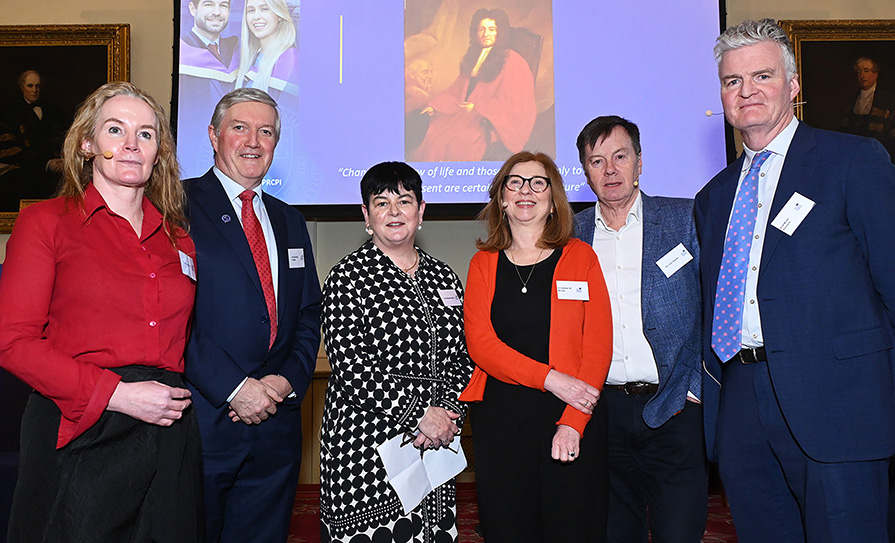
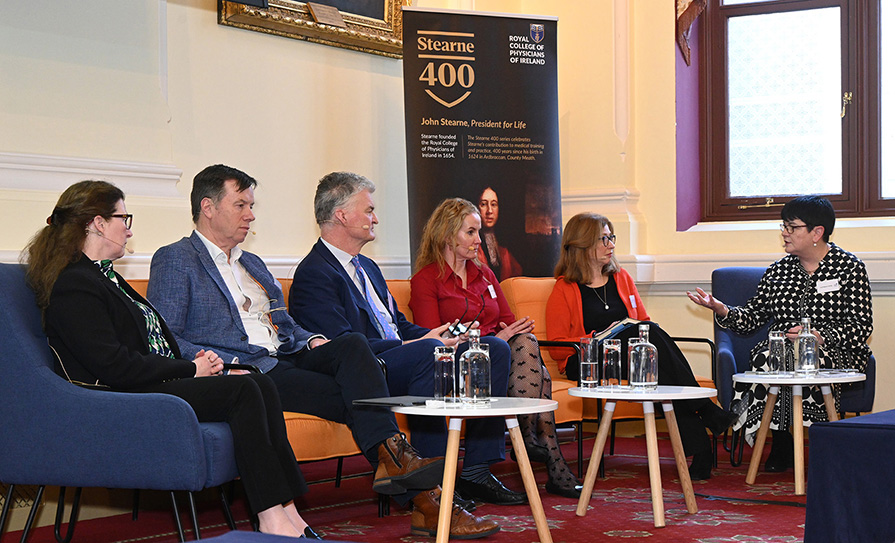
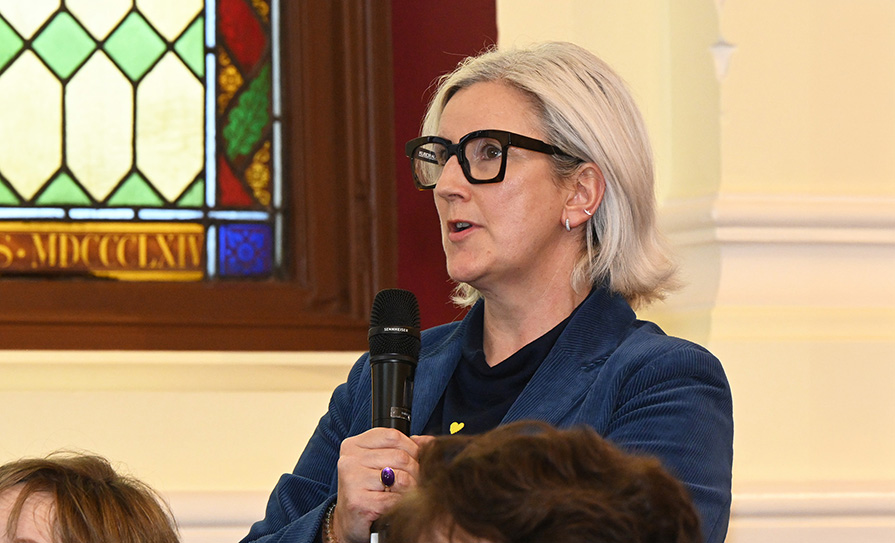
Health regions
We need to ensure that we meet the care needs of specific groups – providing healthcare that is inclusive and available equitably across the country through the new health regions. That also means that hospitals and community healthcare settings must be appropriately staffed and resourced with the right equipment and facilities to care for those with special care needs in the broadest sense to those with specific requirements, including people with autism, dementia, and physical care needs.
We need a collective and considered refocus on prevention and health promotion, providing health education in an inclusive way to address growing issues from childhood obesity to frailty. There are many synergies to be found here in supporting prevention and keeping people well and in optimising care pathways. Doing this with broad consideration given to sustainability is a challenge we all share.
Alignment to the new structures emerging under the health regions’ community structures will give us the template to shape how doctor training and education will evolve in the future. This is not an easy task. The ever-changing landscape in which medicine is practised, societal expectations, litigation, and the blame culture, among other things, allied to the demands placed on physicians today add to this complexity. Finding ways to ensure training is equitable, flexible, localised where possible, and uniform will not only enhance the training experience, but it will also support the recruitment and retention of all doctors. We must do this while continuing to provide an efficient, safe, high-quality health service for the people who need to avail of it.
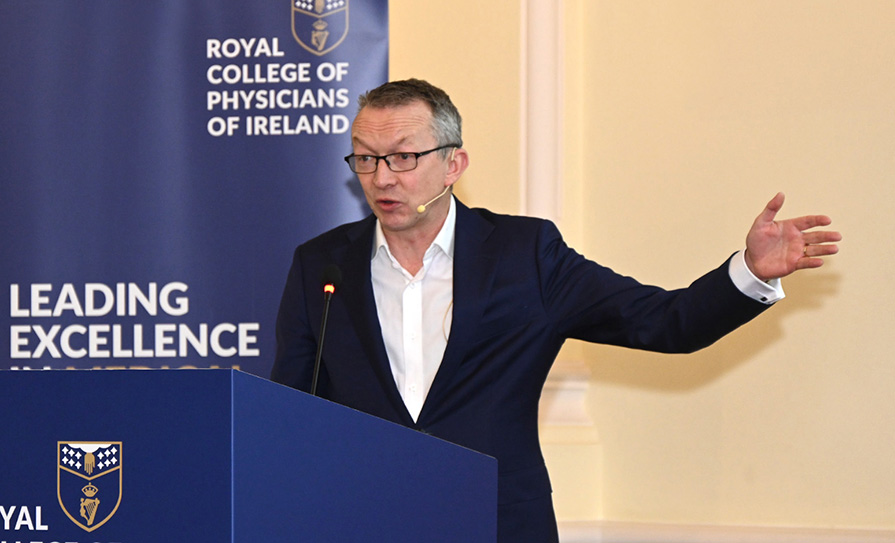
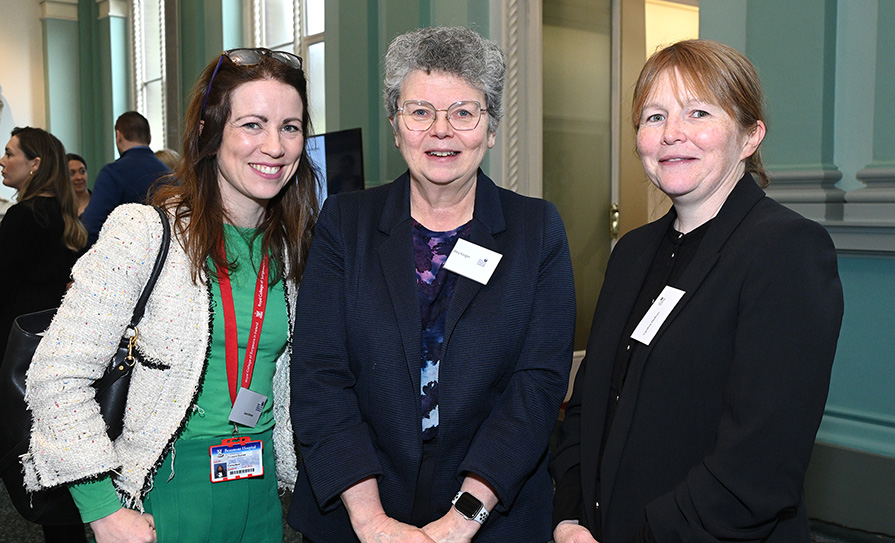
Recruitment
Doctors trained in Ireland are trusted and valued globally for the significant contributions they make to healthcare and medical research. Many of our doctors, trained in medical and surgical training programmes in Ireland, are employed in countries around the world and are highly valued, as is the contribution they make. We are very proud of them. We need to embrace this extensive international impact and, at the same time, encourage them to come home – this will be instrumental in creating a more sustainable workforce for the future.
Data presented during the meeting suggests that those going overseas to practise medicine, to take on Fellowships, and to advance their careers in different care settings – which has always been standard practice in medicine – are returning to Ireland to live and work. While we must encourage this diversity of experience abroad, we must also make it attractive for doctors and other healthcare professionals to return and bring their international experience back to Irish healthcare settings.
There was broad consensus on the need to move away from over reliance on trainees and NCHDs not in training schemes to consultant-delivered services, with integrated care teams operationalised. There will be unique challenges in delivering this across all community and hospital settings.
Digital
Digital health, hugely accelerated due to the Covid-19 pandemic, creates immense, yet complex opportunities. We must not lose sight of the importance of the patient-doctor relationship and the trust we build over time. Over the course of a medical career these skills develop and grow though a lifelong learning programme, continuing clinical experience and continuous professional development. As digital technology and artificial intelligence play an increasing role in how medicine is practised and delivered, we must ensure that these advances in science and technology enhance not just the quality-of-care delivered to our patients, but the art of clinical medicine as well.
The engaged conversation and rich feedback from all contributors at the meeting are indicative of the genuine commitment to delivering healthcare that meets the future needs of our patients and communities and is informing the changes and progress required to train the healthcare professionals of the future. As always, exciting and challenging times are ahead for us all in healthcare.
The next ‘Changing Horizons: Framing the Delivery of Training to 2030 and Beyond’ meeting will take place on Tuesday 4 June. Registration will open shortly on the RCPI website.
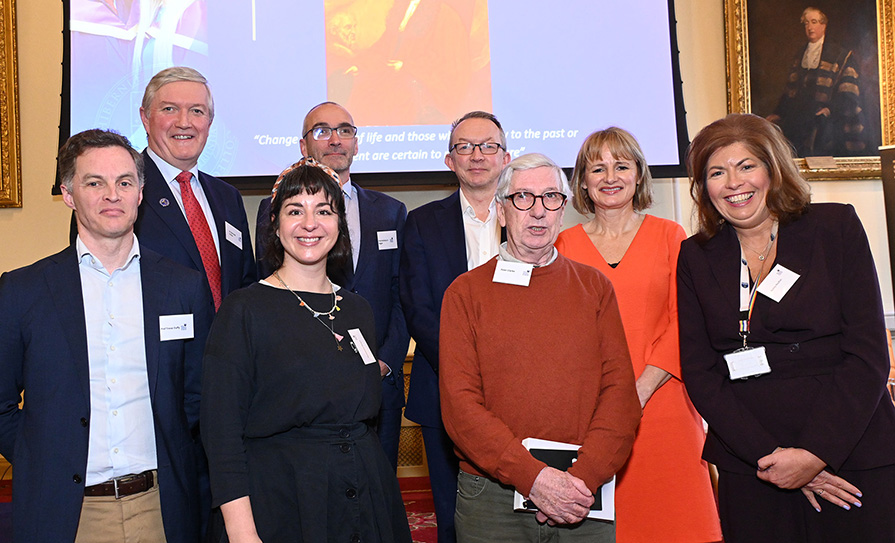












Leave a Reply
You must be logged in to post a comment.